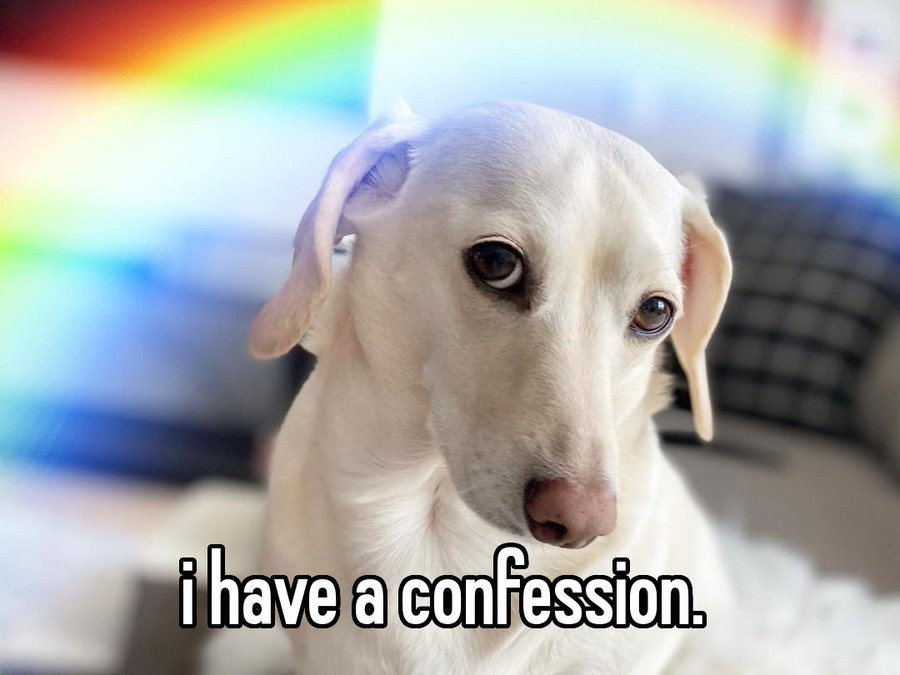Unleashing The Truth: The Surprising World Of Homophobic Dog
Hey there, buddy. Let’s talk about something that’s been barking up the wrong tree lately: the concept of a so-called "homophobic dog." Now, I know what you’re thinking—can a dog really have prejudices? Is this just another case of humans projecting their own baggage onto our furry friends? Stick around because we’re diving deep into this controversial topic, and trust me, it’s going to get interesting. If you’ve ever wondered whether your pup is secretly judging your playlist or giving side-eye to your Netflix queue, you’re in the right place.
This conversation isn’t just for pet owners, though. It’s for anyone curious about how we interpret animal behavior and whether we’re doing them—or ourselves—a disservice by labeling it with human traits. So grab your coffee, settle in, and let’s unpack this together. Spoiler alert: dogs are amazing, and they don’t care about your sexual orientation—or do they?
Before we jump into the nitty-gritty, let’s clear the air. The phrase “homophobic dog” might sound like clickbait, but it’s actually a fascinating look at how humans perceive animals. Are we misunderstanding their actions, or are we just looking for drama where there isn’t any? Either way, you’re about to learn more than you ever thought possible about our four-legged companions. Let’s go!
Read also:Joshua Rush The Rising Star You Need To Know
What Does "Homophobic Dog" Even Mean?
Alright, so here’s the deal. When people throw around the term “homophobic dog,” they’re usually not talking about actual homophobia, which is a deeply human issue. Instead, they’re describing a situation where a dog seems to act strangely—or even aggressively—around certain individuals, often leading to assumptions that the dog is picking up on something “different.” But is it really that simple?
Understanding Canine Behavior
Let’s break it down. Dogs are incredibly intuitive creatures. They pick up on scents, body language, and even subtle changes in tone of voice. If a dog seems to react negatively to someone, it could be because of a number of reasons:
- Scent Sensitivity: Dogs have an extraordinary sense of smell, and they can detect things humans can’t. Maybe the person has a unique scent that’s throwing the dog off.
- Body Language: Humans often project their emotions through their posture and gestures. A dog might interpret someone’s nervousness or discomfort as a threat.
- Previous Experiences: Dogs are creatures of habit. If they’ve had a negative encounter with someone similar in appearance or behavior, they might react defensively.
So before we start labeling dogs as “homophobic,” we need to consider these factors. It’s easy to jump to conclusions, but the truth is usually more nuanced.
Is Homophobia a Thing in the Animal Kingdom?
Now, here’s where things get really interesting. Can animals actually exhibit prejudice? The short answer is no—at least not in the way humans do. Homophobia, racism, and other forms of discrimination are deeply rooted in human culture and psychology. Animals, on the other hand, operate on instinct and survival.
Animal Behavior vs. Human Projection
When we see a dog acting strangely around someone, it’s tempting to assign human-like motives to their behavior. But that’s exactly what it is: projection. Dogs don’t have the capacity to understand complex social constructs like sexuality or gender identity. What they do understand is whether someone feels safe or threatening.
For example, studies have shown that dogs can sense stress hormones like cortisol in humans. If someone is anxious or uncomfortable, a dog might react accordingly. It’s not about who the person is—it’s about how they’re presenting themselves in that moment.
Read also:Wallis Day A Celebration Of Culture Heritage And Unity
The Science Behind It All
Let’s dive into the science for a minute. Research conducted by experts in animal behavior has consistently shown that dogs rely on their senses to navigate the world. They don’t judge people based on their appearance, sexual orientation, or anything else. Instead, they focus on what they can directly perceive.
Key Findings from Studies
- Sense of Smell: Dogs can detect pheromones and other chemical signals that humans can’t. This might explain why they sometimes seem to “know” things about people that we don’t.
- Emotional Intelligence: Dogs are incredibly attuned to human emotions. They can pick up on subtle cues like facial expressions and tone of voice, which might lead to misunderstandings if we don’t interpret their behavior correctly.
- Learning and Adaptation: Dogs are quick learners. If they’ve had a bad experience with someone in the past, they might generalize that experience to others who seem similar.
So while it’s fun to speculate about whether dogs can be “homophobic,” the science suggests otherwise. They’re just being dogs, doing what dogs do best: reacting to their environment.
Why Do People Think Dogs Can Be Homophobic?
Here’s the thing: humans love to anthropomorphize animals. We assign human traits to them because it helps us relate to them. It’s why we think our cats are “grumpy” or our dogs are “guilty” when they’ve done something wrong. But the truth is, animals operate on a completely different level.
The Power of Perception
When someone says their dog is “homophobic,” what they’re really saying is that the dog behaves differently around certain people. Maybe the dog growls, barks, or tries to protect its owner. These behaviors can seem alarming, but they’re usually rooted in something much simpler than homophobia.
For example, a dog might react negatively to someone who moves quickly or makes loud noises. Or maybe the person has a scent that reminds the dog of a past negative experience. Whatever the reason, it’s unlikely to have anything to do with the person’s sexual orientation.
Can Dogs Sense Sexual Orientation?
This is one of the most common questions people ask when discussing the topic of “homophobic dogs.” Can dogs really tell if someone is gay, straight, or somewhere in between? The answer, once again, is no—not in the way humans might think.
What Dogs Can Sense
Dogs can detect things like pheromones, body language, and emotional states. If someone is particularly relaxed or anxious, a dog might pick up on that and react accordingly. But sexual orientation isn’t something that can be detected through these means. It’s a deeply personal aspect of identity that dogs simply don’t have the capacity to understand.
That being said, dogs are incredibly perceptive. If someone is comfortable and confident in their identity, a dog might sense that and react positively. Conversely, if someone is anxious or insecure, the dog might pick up on that and act defensively. It’s all about context.
Debunking the Myth of the "Homophobic Dog"
Now that we’ve explored the science and psychology behind dog behavior, it’s time to debunk the myth once and for all. Dogs aren’t capable of homophobia—or any other form of prejudice. They’re just reacting to their environment based on their instincts and experiences.
Why This Matters
Labeling a dog as “homophobic” can be harmful. It perpetuates stereotypes and reinforces the idea that animals are capable of human-like biases. It also distracts from the real issues at play, such as how we interpret and respond to animal behavior.
Instead of jumping to conclusions, we should focus on understanding our pets better. By paying attention to their cues and learning how they communicate, we can build stronger, more meaningful relationships with them.
How to Handle a "Homophobic Dog"
If you find yourself in a situation where your dog seems to be acting strangely around certain people, don’t panic. There are steps you can take to address the issue and help your furry friend feel more comfortable.
Tips for Managing Dog Behavior
- Stay Calm: Dogs can sense when their owners are anxious or upset. If you remain calm, your dog is more likely to follow suit.
- Provide Positive Reinforcement: Reward your dog for good behavior, especially when they’re around people who might make them uncomfortable.
- Gradual Exposure: If your dog seems to react negatively to certain individuals, try gradually exposing them to those people in a controlled, positive environment.
- Consult a Professional: If the behavior persists, consider reaching out to a professional dog trainer or behaviorist for guidance.
Remember, dogs are creatures of habit. With patience and consistency, you can help them overcome any negative associations they might have.
Conclusion: Embracing Our Furry Friends
Alright, so here’s the bottom line: dogs aren’t homophobic. They’re just dogs, doing their best to navigate a complex world filled with scents, sounds, and emotions. By understanding their behavior and learning how to communicate with them effectively, we can build stronger, more meaningful relationships with our furry friends.
So the next time someone tells you their dog is “homophobic,” take a deep breath and remember what you’ve learned. Dogs don’t judge—they react. And that’s something we could all stand to learn from.
What do you think? Have you ever encountered a situation where your dog seemed to act strangely around someone? Share your thoughts in the comments below, and don’t forget to check out our other articles for more insights into the amazing world of dogs!
Table of Contents
- Unleashing the Truth: The Surprising World of Homophobic Dog
- What Does "Homophobic Dog" Even Mean?
- Understanding Canine Behavior
- Is Homophobia a Thing in the Animal Kingdom?
- Animal Behavior vs. Human Projection
- The Science Behind It All
- Key Findings from Studies
- Why Do People Think Dogs Can Be Homophobic?
- The Power of Perception
- Can Dogs Sense Sexual Orientation?
- What Dogs Can Sense
- Debunking the Myth of the "Homophobic Dog"
- Why This Matters
- How to Handle a "Homophobic Dog"
- Tips for Managing Dog Behavior
- Conclusion: Embracing Our Furry Friends


